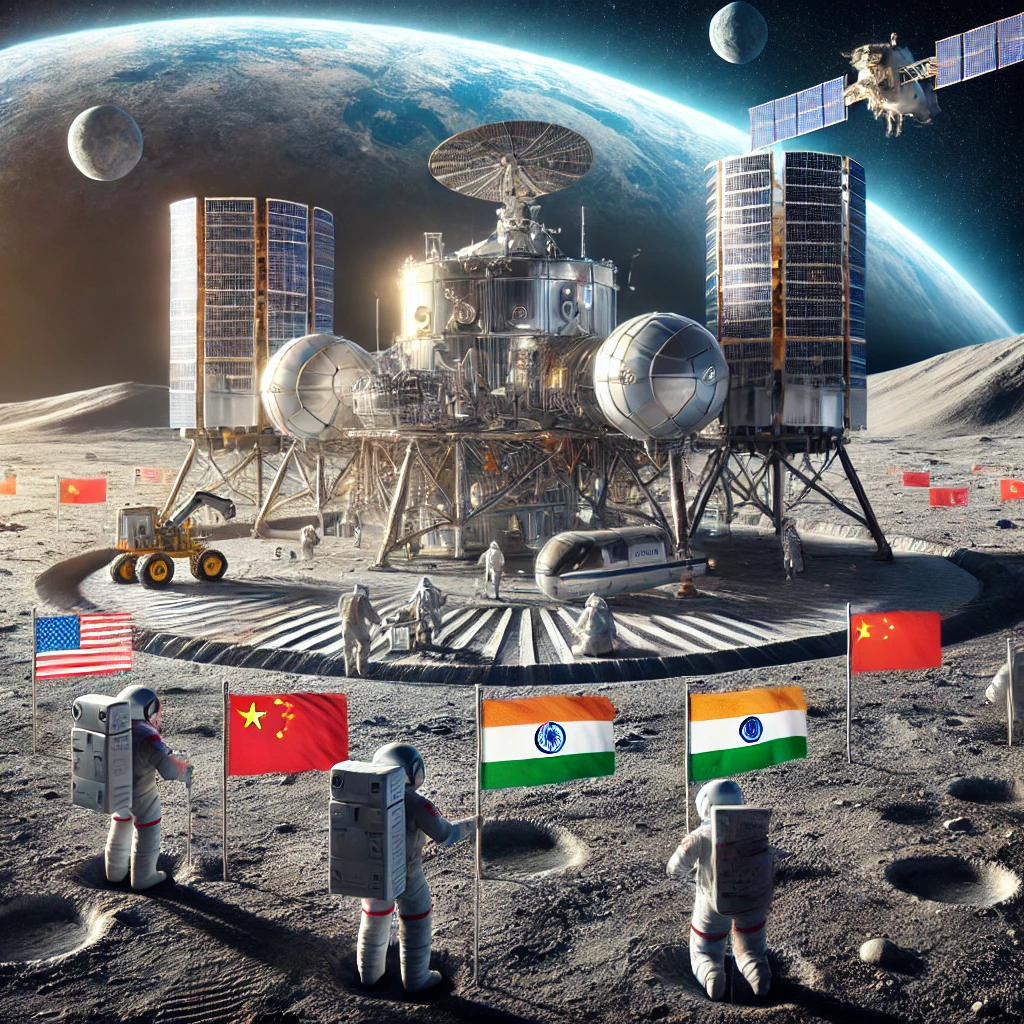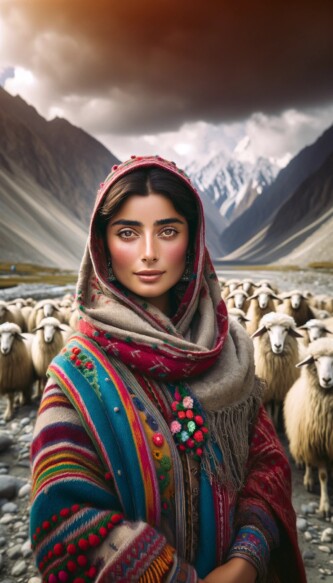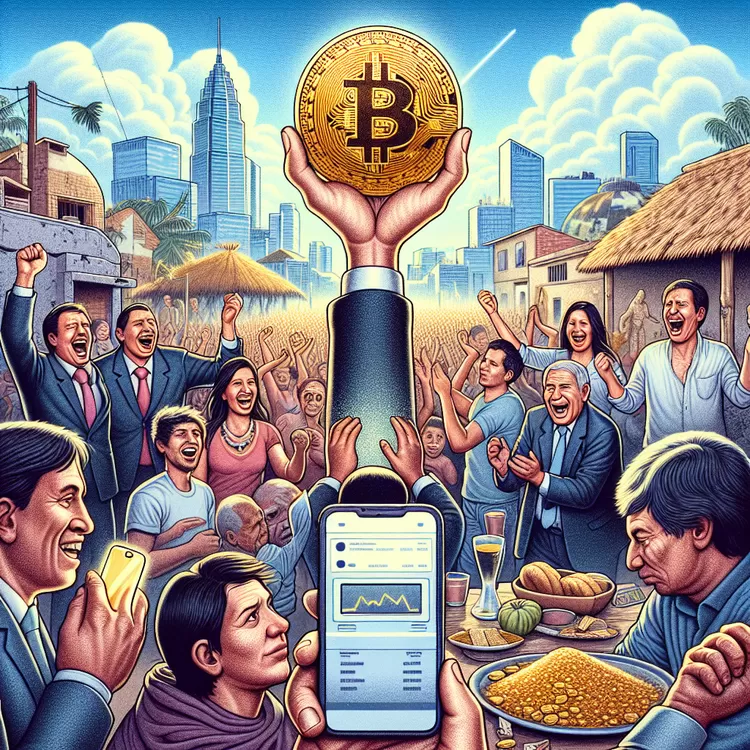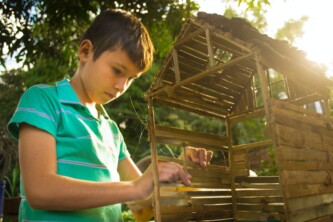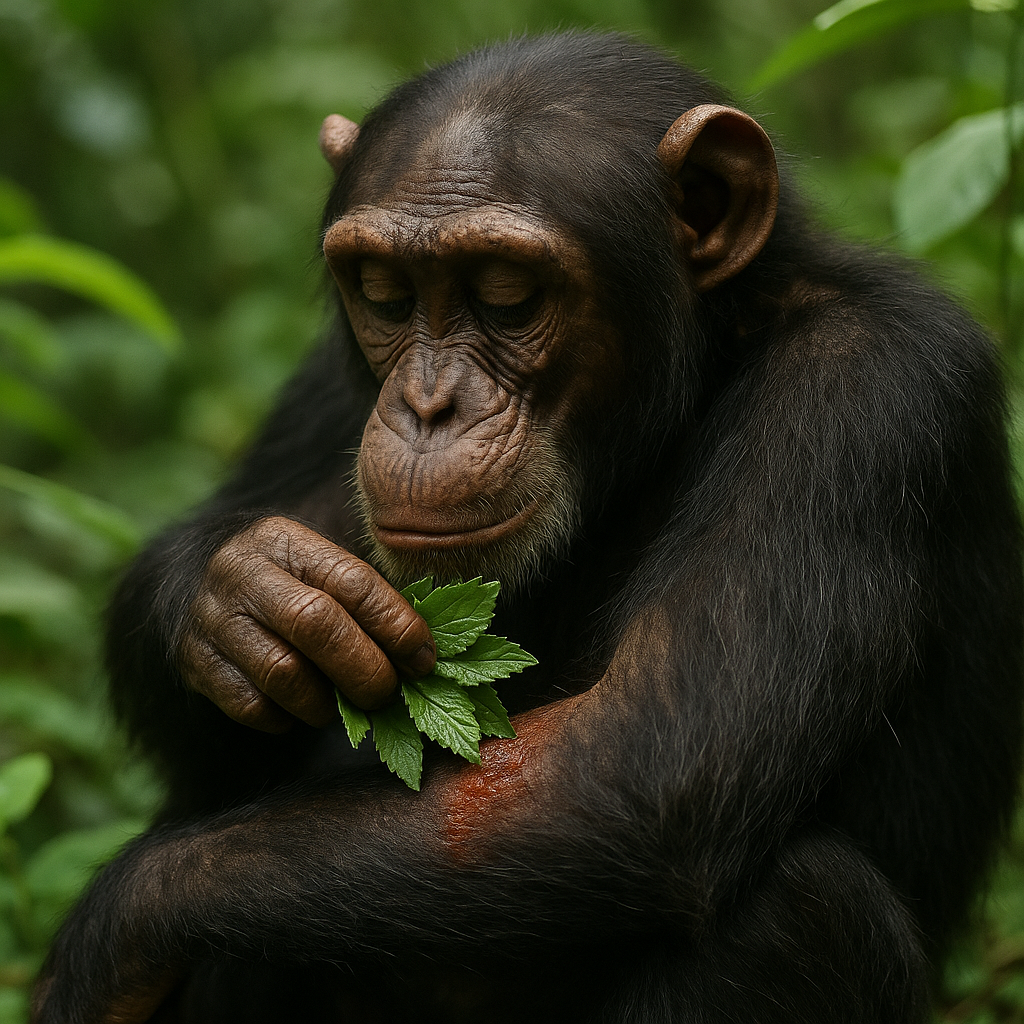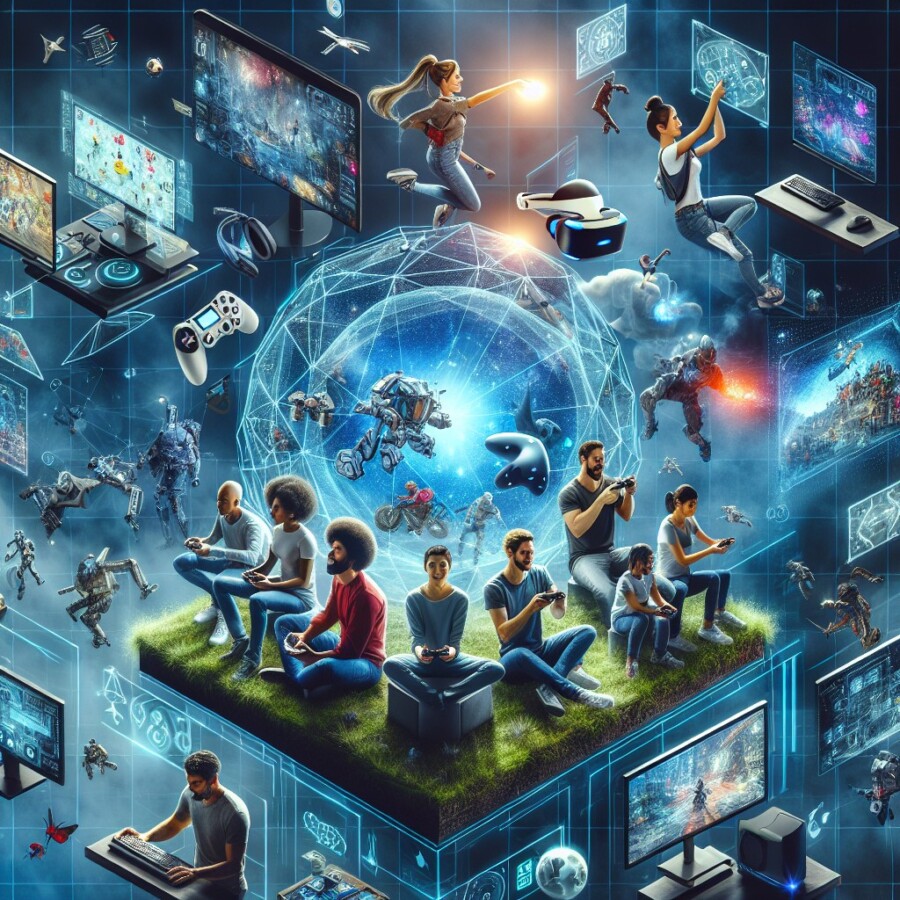Many countries and companies want to explore and use the Moon. China, India, Japan, and the US have sent spacecraft to the Moon and plan to build bases there. But who owns the Moon and its resources is a big question. The 1967 Outer Space Treaty says no one can own the Moon, but new companies and the value of Moon resources make things complicated.
Water is one of the most important resources on the Moon. It can be used for drinking, making oxygen, and rocket fuel. The US has created the Artemis Accords to guide how countries explore and use the Moon. But not everyone agrees on the rules, and there could be fights over Moon land and resources.
As more people go to the Moon, we need to think about the future. The Moon belongs to everyone, and we should use it to help all countries. Working together and making fair rules is important to keep the Moon a place for peace and science. We don’t want it to become a place for fights between countries.
Original news source: Who owns the Moon? A new space race means it could be up for grabs (BBC)
🎧 Listen:
Slow
Normal
Fast
📖 Vocabulary:
| 1 | explore | To travel around a place to learn about it |
| 2 | spacecraft | A vehicle used for traveling in space |
| 3 | resources | Things that are useful or valuable |
| 4 | treaty | An agreement between countries |
| 5 | complicated | Hard to understand or deal with |
| 6 | oxygen | A gas that people and animals need to breathe |
| 7 | guide | To show the way or lead |
| 8 | rules | Instructions that tell you what you can or cannot do |
| 9 | fights | Arguments or battles |
| 10 | future | The time that comes after now |
| 11 | belongs | To be owned by someone |
| 12 | peace | A time without war or fighting |
Group or Classroom Activities
Warm-up Activities:
– News Summary
Instructions:
1. Divide the class into small groups.
2. Provide each group with a copy of the article.
3. Instruct the groups to read the article and summarize the main points in a brief news summary.
4. After a designated time, have each group share their news summary with the rest of the class.
– Opinion Poll
Instructions:
1. Ask the students to form pairs.
2. Give each pair a list of questions related to the article.
3. Instruct the students to take turns asking their partner the questions and record their answers.
4. After the discussion, have the pairs share their partner’s opinions with the class and facilitate a brief class discussion.
– Vocabulary Pictionary
Instructions:
1. Write down several vocabulary words from the article on separate slips of paper.
2. Divide the class into two teams.
3. One student from each team takes turns selecting a slip of paper and drawing a quick sketch to represent the word without using any letters or numbers.
4. The rest of the team members must guess the word within a certain time limit.
5. The team with the most correct guesses wins the game.
– Keyword Hangman
Instructions:
1. Write down a keyword from the article on the board, leaving out the vowels.
2. Divide the class into two teams.
3. One student from each team takes turns guessing letters to complete the keyword.
4. If a guessed letter is correct, write it in its correct position within the word. If it is incorrect, draw part of a hangman.
5. The team that correctly guesses the keyword first wins the game.
– Future Predictions
Instructions:
1. Ask the students to work individually.
2. Instruct them to read the article and think about the future implications of Moon exploration and resource utilization.
3. Have the students write down their predictions for what they think will happen in the future, based on the information in the article.
4. After a designated time, allow the students to share their predictions with a partner and discuss their reasoning behind their predictions.
🤔 Comprehension Questions:
1. Why do many countries and companies want to explore and use the Moon?
2. What is one important resource on the Moon that can be used for drinking, making oxygen, and rocket fuel?
3. What is the name of the agreement that the US has created to guide how countries explore and use the Moon?
4. Why do some people disagree on the rules for exploring and using the Moon?
5. Who does the Moon belong to?
6. Why is it important for countries to work together and make fair rules for the Moon?
7. What do we not want the Moon to become a place for?
Go to answers ⇩
🎧✍️ Listen and Fill in the Gaps:
Many countries and companies want to explore and use the Moon. China, (1)______, Japan, and the US have sent spacecraft to the Moon and (2)______ to (3)______ bases there. But who owns the Moon and its resources is a big question. The 1967 Outer Space Treaty says no one can own the (4)______, but new companies and the value of Moon resources make things complicated.
Water is one of the most important resources on the Moon. It can be used for drinking, (5)______ oxygen, and (6)______ fuel. The US has created the Artemis (7)______ to (8)______ how countries explore and use the Moon. But not everyone agrees on the rules, and there could be fights over Moon land and resources.
As more people go to the Moon, we (9)______ to think about the future. The Moon belongs to everyone, and we should use it to help all countries. Working together and making fair rules is (10)______ to keep the Moon a place for peace and (11)______. We don’t want it to become a place for (12)______ between countries.
Go to answers ⇩
💬 Discussion Questions:
Students can ask a partner these questions, or discuss them as a group.
1. What is the Moon?
2. How would you feel if you could go to the Moon one day?
3. Do you think it’s fair that no one can own the Moon? Why or why not?
4. What are some resources on the Moon that people can use?
5. How do you think water can be used on the Moon?
6. Do you like the idea of building bases on the Moon? Why or why not?
7. What do you think the Artemis Accords are?
8. How do you think fights over Moon land and resources can be avoided?
9. What do you think would happen if more people go to the Moon?
10. Why do you think it’s important to work together and make fair rules for the Moon?
11. Do you think the Moon should be a place for peace and science? Why or why not?
12. What do you think would happen if the Moon becomes a place for fights between countries?
Individual Activities
📖💭 Vocabulary Meanings:
Match each word to its meaning.
Words:
1. explore
2. spacecraft
3. resources
4. treaty
5. complicated
6. oxygen
7. guide
8. rules
9. fights
10. future
11. belongs
12. peace
Meanings:
(A) Things that are useful or valuable
(B) To show the way or lead
(C) To be owned by someone
(D) Hard to understand or deal with
(E) A time without war or fighting
(F) A vehicle used for traveling in space
(G) An agreement between countries
(H) Arguments or battles
(I) Instructions that tell you what you can or cannot do
(J) To travel around a place to learn about it
(K) A gas that people and animals need to breathe
(L) The time that comes after now
Go to answers ⇩
🔡 Multiple Choice Questions:
1. Which countries have sent spacecraft to the Moon?
(a) France, Germany, Italy, and Spain
(b) Australia, Brazil, Canada, and Mexico
(c) Russia, South Africa, Thailand, and Vietnam
(d) China, India, Japan, and the US
2. What is one important resource on the Moon?
(a) Oil
(b) Gold
(c) Water
(d) Coal
3. What can water on the Moon be used for?
(a) Drinking, making oxygen, and rocket fuel
(b) Making clothes, building houses, and cooking
(c) Growing plants, making electricity, and driving cars
(d) Writing books, painting pictures, and playing music
4. What is the Artemis Accords?
(a) A set of rules to guide how countries explore and use the Moon
(b) A new type of rocket to travel to the Moon
(c) A famous astronaut who walked on the Moon
(d) A treaty to divide the Moon among countries
5. Who does the Moon belong to?
(a) The United States
(b) China
(c) Everyone
(d) Russia
6. What should countries do to keep the Moon a place for peace and science?
(a) Fight over Moon land and resources
(b) Keep the Moon a secret from other countries
(c) Use the Moon only for military purposes
(d) Work together and make fair rules
7. What could happen if countries don’t agree on the rules for the Moon?
(a) The Moon could become a place for peace and science
(b) There could be fights over Moon land and resources
(c) The Moon could be sold to the highest bidder
(d) The Moon could be divided into different countries
8. What is the main idea of the article?
(a) The Moon is a dangerous place and should not be explored
(b) Many countries and companies want to explore and use the Moon, but who owns it is a big question
(c) The Moon is full of valuable resources like gold and oil
(d) The Moon belongs to the United States and no one else
Go to answers ⇩
🕵️ True or False Questions:
1. We don’t want the Moon to become a place where countries fight with each other.
2. China, India, Japan, and the US have all sent spacecraft to the Moon.
3. Not everyone agrees on the rules for using the Moon, which could prevent fights over land and resources.
4. The 1967 Outer Space Treaty states that no one can own the Moon.
5. The US has not created the Artemis Accords to guide how countries explore and use the Moon.
6. It is not important for countries to work together and make fair rules to keep the Moon a peaceful place for science.
7. The Moon belongs to everyone and should be used to help all countries.
8. Water is not an important resource on the Moon and cannot be used for drinking, making oxygen, and rocket fuel.
Go to answers ⇩
📝 Write a Summary:
Write a summary of this news article in two sentences.
Check your writing now with the best free AI for English writing!
Writing Questions:
Answer the following questions. Write as much as you can for each answer.
Check your answers with our free English writing assistant!
1. What are some countries that want to explore and use the Moon?
2. Why is water an important resource on the Moon?
3. What is the Artemis Accords?
4. Why is it important for countries to work together and make fair rules for the Moon?
5. What could happen if countries start fighting over Moon land and resources?
✅ Answers
🤔✅ Comprehension Question Answers:
1. Why do many countries and companies want to explore and use the Moon?
Many countries and companies want to explore and use the Moon because they believe it has valuable resources and can help with scientific research.
2. What is one important resource on the Moon that can be used for drinking, making oxygen, and rocket fuel?
Water is an important resource on the Moon that can be used for drinking, making oxygen, and rocket fuel.
3. What is the name of the agreement that the US has created to guide how countries explore and use the Moon?
The name of the agreement is the Artemis Accords.
4. Why do some people disagree on the rules for exploring and using the Moon?
Some people disagree on the rules for exploring and using the Moon because they have different ideas about who should own the Moon and its resources.
5. Who does the Moon belong to?
The Moon belongs to everyone.
6. Why is it important for countries to work together and make fair rules for the Moon?
It is important for countries to work together and make fair rules for the Moon to avoid fights and conflicts between countries and to ensure that the Moon can be used to benefit all countries.
7. What do we not want the Moon to become a place for?
We do not want the Moon to become a place for fights between countries.
Go back to questions ⇧
🎧✍️✅ Listen and Fill in the Gaps Answers:
(1) India
(2) plan
(3) build
(4) Moon
(5) making
(6) rocket
(7) Accords
(8) guide
(9) need
(10) important
(11) science
(12) fights
Go back to questions ⇧
📖💭✅ Vocabulary Meanings Answers:
1. explore
Answer: (J) To travel around a place to learn about it
2. spacecraft
Answer: (F) A vehicle used for traveling in space
3. resources
Answer: (A) Things that are useful or valuable
4. treaty
Answer: (G) An agreement between countries
5. complicated
Answer: (D) Hard to understand or deal with
6. oxygen
Answer: (K) A gas that people and animals need to breathe
7. guide
Answer: (B) To show the way or lead
8. rules
Answer: (I) Instructions that tell you what you can or cannot do
9. fights
Answer: (H) Arguments or battles
10. future
Answer: (L) The time that comes after now
11. belongs
Answer: (C) To be owned by someone
12. peace
Answer: (E) A time without war or fighting
Go back to questions ⇧
🔡✅ Multiple Choice Answers:
1. Which countries have sent spacecraft to the Moon?
Answer: (d) China, India, Japan, and the US
2. What is one important resource on the Moon?
Answer: (c) Water
3. What can water on the Moon be used for?
Answer: (a) Drinking, making oxygen, and rocket fuel
4. What is the Artemis Accords?
Answer: (a) A set of rules to guide how countries explore and use the Moon
5. Who does the Moon belong to?
Answer: (c) Everyone
6. What should countries do to keep the Moon a place for peace and science?
Answer: (d) Work together and make fair rules
7. What could happen if countries don’t agree on the rules for the Moon?
Answer: (b) There could be fights over Moon land and resources
8. What is the main idea of the article?
Answer: (b) Many countries and companies want to explore and use the Moon, but who owns it is a big question
Go back to questions ⇧
🕵️✅ True or False Answers:
1. We don’t want the Moon to become a place where countries fight with each other. (Answer: True)
2. China, India, Japan, and the US have all sent spacecraft to the Moon. (Answer: True)
3. Not everyone agrees on the rules for using the Moon, which could prevent fights over land and resources. (Answer: False)
4. The 1967 Outer Space Treaty states that no one can own the Moon. (Answer: True)
5. The US has not created the Artemis Accords to guide how countries explore and use the Moon. (Answer: False)
6. It is not important for countries to work together and make fair rules to keep the Moon a peaceful place for science. (Answer: False)
7. The Moon belongs to everyone and should be used to help all countries. (Answer: True)
8. Water is not an important resource on the Moon and cannot be used for drinking, making oxygen, and rocket fuel. (Answer: False)
Go back to questions ⇧



